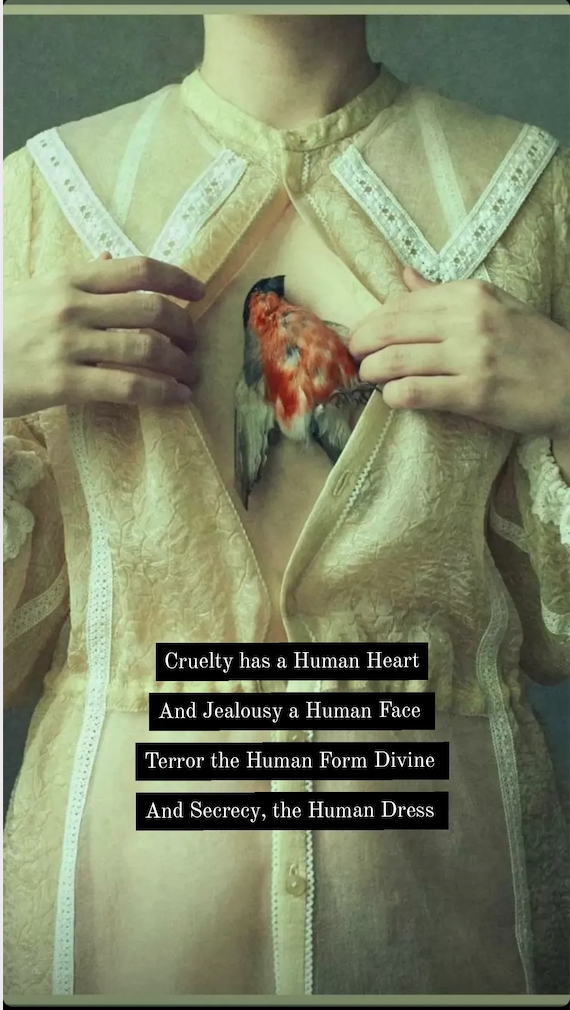As a woman who has to constantly navigate the patriarchy and listen to other men “mansplain” to me, I found this novel to be very personal, intimate, and emotional. It also feels so real, because in many cultures and religious traditions people believe that the consciousness of the dead lives on and thus the state of mind and thoughts of Ana Maria feel so accurate and convincing. It is fascinating that Ana Maria’s thoughts turn to love and all the complexities associated with it as it is one of the main regrets people on their death beds express–not having loved enough and not having lived in the moment. Which is why this novella is even more poignant, because Ana Maria is not on her deathbed, she is dead. Only through the eyes of a dead woman who talks about her life in the past tense, did I truly feel the joy of my life lived now. I am grateful that I still have time to love, and do things differently so I do not have regrets, and to right the wrongs I have done.
Indeed, death is a reminder that all these trivial things we busy ourselves with and all of that idle talk will come to an end. As Ana Maria lays shrouded in her casket, she is not thinking about how clean her house was kept, or who will inherit her belongings, but only reflects on the things that truly matter. The problem is that she is dead and it is too late for her to go back and rethink her choices. Living in a pandemic, and seeing so much death and suffering around us, so works remind us that none of us are promised a tomorrow and we really should live by the Latin idiom of carpe diem (seize the day). The novel inspires us to live differently and is also chilling and sad because it is too late for the protagonist to do anything but contemplate her life in retrospect.
Ana Maria was, in a way, already dead when she was alive, and after experiencing real death, at least her torment and suffering came to an end. At the end she seems content and resigns herself to her fate and embraces death. I found the last paragraph to be so poignant:
“I swear it. The woman in the shroud did not feel the slightest desire to rise again. Alone, she would at last be able to rest, to die. For she had suffered the death of the living. she had already suffered the death of the living. And now she longed for total immersion, for the second death, the death of the dead. ”
Indeed, there are so many people who sleepwalk through life and never get to experience what it is to be truly alive, to live in the moment. This Islamic saying attributed to Ali comes to mind:
“people are asleep and when they die, they wake up” Ali ibn Abī Tālib

Noor – I find your connections to present-day patriarchy and the pandemic insightful! Thank you for sharing your personal thoughts and reactions to Bombal’s novella.
I see that you’ve used the tag “Catharsis” (great use of tags, by the way!). Am I correct in that you are using this term in the sense that, by narrating her life’s traumas (even from the place of death), the narrator can find healing and finally move on to a deeper death, but also come to peace with the deadness that marked her life?
Hi Noor!
I really like how you drew a connection to the pandemic, I always thinking writing absorbs deeper when we are able to draw connections to such prevalent topics in our lives. I agree that it is important to start living as though nothing in our future is promised, and I agree that this reading gave me a perspective on that and forced my hand to realize that at any moment things could change and we shouldn’t spend our time caught up on the little details, but instead should be living everyday to its fullest extent without any regrets!